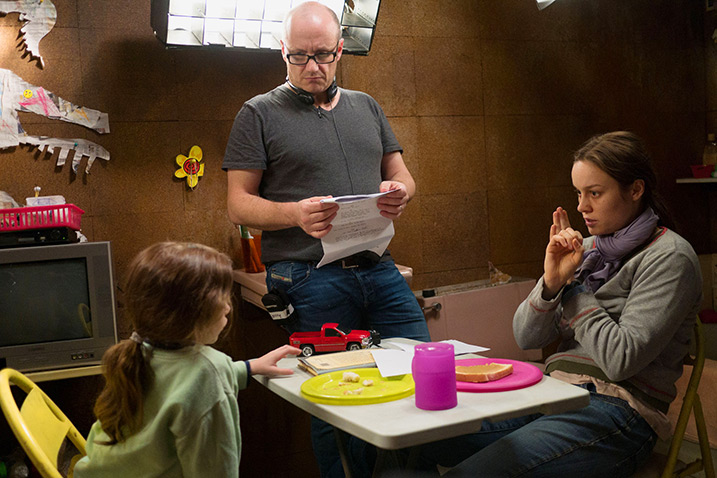 The journey to making a movie can be a long one, as finances come together, endless meetings take place, followed by rounds of casting, approvals, and more. But for director Lenny Abrahamson, his Oscar-nominated "Room" started with one thing — a letter. After reading Emma Donoghue‘s novel on which the movie is based, the filmmaker put down his vision across five pages and sent it to the author, hoping he could convince her to entrust her bestseller with his approach.
The journey to making a movie can be a long one, as finances come together, endless meetings take place, followed by rounds of casting, approvals, and more. But for director Lenny Abrahamson, his Oscar-nominated "Room" started with one thing — a letter. After reading Emma Donoghue‘s novel on which the movie is based, the filmmaker put down his vision across five pages and sent it to the author, hoping he could convince her to entrust her bestseller with his approach.
"Somebody recommended [the book] and I read it. I really loved it, and I’m a parent — I had a boy of nearly four when I read the novel — so I think my feelings for him really transferred into my feeling for the character. I had a very strong impulse to make it into a film and I should make it into a film and nobody else should make it into a film," he explained to ComingSoon last fall. "I thought at the same time that my chances were pretty slim, because it was a well-known novel. I remember reading that Obama had been pictured with it coming out of a bookshop in Martha’s Vineyard. I thought, ‘That’s it. Come on. It’s never going to happen.’ But I just wrote Emma this very long letter, sort of saying, ‘I understand your novel. I know how it works and how to do it, and I will protect it and I won’t f*ck it up, and other people will f*ck it up. Don’t give it away.’ She really responded to that and that was the beginning of our conversation."
READ MORE: Telluride Review: Lenny Abrahamson’s ‘Room’ Starring Brie Larson & Jacob Tremblay
The letter, which is now online in full, finds Abrahamson explaining how he’d approach what seems like visually restricting picture, while respecting the material. Here’s an excerpt:
Visually, shooting such a large proportion of a film inside a single, small room might seem like a problem – after all, don’t films rely on scale, movement, shifting locations and so on? In the case of ‘Room’ I have no worries. Room is small in dimension, but in meaning it is a fantastically rich, story filled and ritualized space. Every object has its history and is marked by multiple stories from Jack and Ma’s past. And room is full of different locations – under the table where Jack sees mouse, inside wardrobe, bed, bath… each for Jack, is a separate world. And room can be transformed for Phys Ed, for washing, for cleaning. Scale is not absolute in film any more than in any other visual medium. Room is a small place but it has been painted in fascinating detail on a big canvas. And there are so many brilliant images from the time inside room – doing ‘corpse’ as part of daily exercises, singing rain songs when skylight shows wet, washing their clothes together in the bath.
Any film version of ‘Room,’ which imposes an over-energised camera style, or any other self-conscious visual device, in the mistaken belief that the physical constraint of location need to be somehow compensated for, will fail because it will lose the taste of reality on which the power of the novel depends. In general, the tone of the film – across the entire story – should be low-key and natural; shifts in emphasis, moments of suspense, pathos, horror, catharsis have to be achieved without the viewers’ attention being drawn to the mechanics. Any appropriation of easy genre techniques has to be avoided… Narrative simplicity and integrity of voice are two of the great strengths of the novel; moments of significance are seamlessly embedded into the unfolding story without any showy stylistic fanfare. The same must be true of the film.
———
Serious films can reach big audiences – there’s ample precedent for this over the last few years – but only when they are made boldly and without nervy compromise. My determination would be to stick honestly to the audacious structure, and brilliant content of the book. This is why having a company like Film4 on board is so important. They have a track record of making films of scale and impact without hobbling the material in the belief that it’s somehow a safer bet to make a more conventional film. They will allow me to keep ‘Room’ safe from harm.
I love this book, I feel I understand how it works, and I believe I have the skill and sensitivity to do it justice on film.
Read the letter in full below. "Room" is now playing in limited release. [via Indiewire]
Room Letter by Chris






He did a better job of describing the novel than directing the film based on the novel.